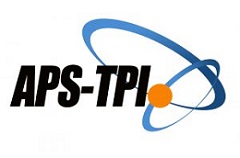Improving Problem-Solving Skills and Student Learning Outcomes Through the Problem-Based Learning Model Assisted by Cultural Branch Media in Civics Lesson Content
Abstract
Keywords
Full Text:
PDFReferences
Abdulah, A., Mustadi, A., & Fitriani, W. (2021). PBL-Based Interactive Multimedia in Improving Critical Thinking Skills. JPI (Jurnal Pendidikan Indonesia), 10(1), 136. https://doi.org/10.23887/jpi-undiksha.v10i1.25521
Acedo, C., & Hughes, C. (2014). Principles for learning and competences in the 21st-century curriculum. Prospects, 44(4), 503–525. https://doi.org/10.1007/s11125-014-9330-1
Erisa, H., Hadiyanti, A. H. D., & Saptoro, A. (2021). Model Project Based Learning untuk meningkatkan kemampuan berpikir kreatif dan hasil belajar siswa. Jurnal Pendidikan Dasar, 12(01), 1-11.
Fatin, N., Harun, L., Ariyanto, L., & Supriyanto, A. (2023). Meningkatkan Hasil Belajar Siswa dengan Menerapkan Metode Tutor Sebaya. PHI: Jurnal Pendidikan Matematika, 7(1), 41-52.
Guntari, R., Hadiyanti, A. H. D., & Kriswanto, Y. B. (2023). Peningkatan Kemampuan Critical Thinking dan Hasil Belajar Siswa Melalui Penerapan Model Problem-Based Learning. Wacana Akademika: Majalah Ilmiah Kependidikan, 7(1), 83-93.
Luthvitasari, N., & Linuwih, S. (2012). Implementasi pembelajaran Fisika Berbasis Proyek terhadap keterampilan berpikir kritis, berpikir kreatif dan kemahiran generik sains. Journal of Innovative Science Education, 1(2).
Meilina, F., Surahman, F., & Sari, M. (2020). Pengembangan media pembelajaran berbentuk miniatur rumah adat pada tema 7 untuk siswa kelas iv sdn 002 tebing kabupaten karimun. Jurnal Minda, 2(1), 44-51.
Miftah, M., & Syamsurijal, S. (2023). Penerapan Model Pembelajaran Discovery untuk Meningkatkan Hasil Belajar Mahasiswa. Edu Cendikia: Jurnal Ilmiah Kependidikan, 3(01), 59-71.
Mubarak, R. (2016). Pengembangan Kurikulum Sekolah Dasar. Madrasah, 6(2), 24. https://doi.org/10.18860/jt.v6i2.3295
Musyaffa, A., Rosyidah, N., & Supriana, E. (2019). Model Problem Based Learning (PBL) Untuk Meningkatkan Scientific Reasoning Siswa. Seminar Nasional Pendidikan Fisika 2019 “Integrasi Pendidikan, Sains, Dan Teknologi Dalam Mengembangkan Budaya Ilmiah Di Era Revolusi Industri 4.0,” 4(1), 129–133.
Nomleni, F. T., & Manu, T. S. N. (2018). Pengembangan media audio visual dan alat peraga dalam meningkatkan pemahaman konsep dan pemecahan masalah. Scholaria: Jurnal Pendidikan Dan Kebudayaan, 8(3), 219-230.
Nurrita, T. (2018). Pengembangan media pembelajaran untuk meningkatkan hasil belajar siswa. Jurnal misykat, 3(1), 171-187.
Nurrohma, R. I., & Adistana, G. A. Y. P. (2019). Penerapan Model Pembelajaran Problem Based Learning dengan Media E-Learning Melalui Aplikasi Edmodo pada Mekanika Teknik. Jurnal Ilmu Pendidikan, 1(3), 294–302.
Musyaffa, A., Rosyidah, N., & Supriana, E. (2019). Model Problem Based Learning (PBL) Untuk Meningkatkan Scientific Reasoning Siswa. Seminar Nasional Pendidikan Fisika 2019 “Integrasi Pendidikan, Sains, Dan Teknologi Dalam Mengembangkan Budaya Ilmiah Di Era Revolusi Industri 4.0,” 4(1), 129–133.
Pradana, H. D. Needs Assessment for Developing Animation Video in Communication Learning. Teknodika, 21(1), 88-96.
Simanjuntak, M. F., & Sudibjo, N. (2019). Meningkatkan Keterampilan Berpikir Kritis Dan Kemampuan Memecahkan Masalah Siswa Melalui Pembelajaran Berbasis Masalah (Improving Students’critical Thinking Skills and Problem Solving Abilities Through Problem-Based Learning). JOHME: Journal of Holistic Mathematics Education, 2(2), 108-118.
Setyaningsih, R., & Rahman, Z. H. (2022). PENGARUH MODEL PROBLEM BASED LEARNING TERHADAP KEMAMPUAN PEMECAHAN MASALAH SISWA. AKSIOMA: Jurnal Program Studi Pendidikan Matematika, 11(2), 1606. https://doi.org/10.24127/ajpm.v11i2.5098
Singh, R. (2016). Learner and Learning in Digital Era : Some Issues and Challenges. International Education & Research Journal [IERJ], 2(10), 92–94. http://ierj.in/journal/index.php/ierj/article/view/508
Sukidjo, R. R. (2016). PENGEMBANGAN BAHAN AJAR BERBASIS PBL PADA PELAJARAN EKONOMI UNTUK MENINGKATKAN KETERAMPILAN SOSIAL PESERTA DIDIK SMA. SOCIA: Jurnal Ilmu-Ilmu Sosial, 13(2). https://doi.org/10.21831/socia.v13i2.12580
Sukmawati, R. (2021). Penerapan Model Pembelajaran Problem Based Learning untuk Meningkatkan Hasil Belajar Matematika Kelas II SDN Wonorejo 01. Glosains: Jurnal Sains Global Indonesia, 2(2), 49–59. https://doi.org/10.36418/glosains.v2i2.21
Suryani, N. E., Utami, C., & Husna, N. (2023). MODEL PROBLEM BASED LEARNING (PBL) BERBANTUAN LEMBAR KERJA SISWA (LKS) UNTUK MENINGKATKAN KEMAMPUAN PENALARAN DAN PEMECAHAN MASALAH MATEMATIS SISWA. JUMLAHKU: Jurnal Matematika Ilmiah STKIP Muhammadiyah Kuningan, 9(1), 21-39.
Tafonao, T. (2018). Peranan Media Pembelajaran Dalam Meningkatkan Minat Belajar Mahasiswa. Jurnal Komunikasi Pendidikan, 2(2), 103. https://doi.org/10.32585/jkp.v2i2.113
Triani, D. S., Winarni, E. W., & Muktadir, A. (2019). Pengaruh Model Pembelajaran Problem Based Learning (PBL) terhadap Sikap Peduli Lingkungan dan Hasil Belajar IPA Siswa Kelas IV SDN 78 Kota Bengkulu. Jurnal Pembelajaran Dan Pengajaran Pendidikan Dasar, 2(1). https://doi.org/10.33369/dikdas.v2i1.8677
Yani Mulyani. (2021). Metode Problem Based Learning Pada Pembelajaran Ekonomi. 5(1), 12–16.
Refbacks
- There are currently no refbacks.





.png)













